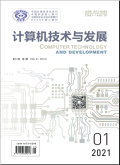计算机技术与发展2024,Vol.34Issue(7):1-8,8.DOI:10.20165/j.cnki.ISSN1673-629X.2024.0120
面向嵌入式系统的多特征融合任务调度方法
A Multi-feature Fusion Task Scheduling Method for Embedded Systems
摘要
Abstract
With the gradual adoption of container technology in embedded systems,task scheduling for embedded containers has become a hot research topic.Although the scheduling method in the cloud server environment is relatively mature,with rich scheduling algorithms such as dynamic priority preemptive scheduling,load balancing scheduling,etc.,the embedded system has different characteristics from the traditional cloud server,the embedded system usually needs to follow the customized operating system and driver development for specific application scenarios and requirements to adapt to different hardware combinations and resource constraints,making the scheduling method in the traditional cloud server environment unable to meet the real-time and flexibility of task scheduling in embedded systems sexual demands.For this reason,a multi-feature fusion task scheduling method is proposed.Based on the analysis of real-time scheduling task dependencies and task characteristics,the proposed method comprehensively considers the three characteristic factors of energy consumption value,time value and load value,and realizes real-time task scheduling in a dynamic preemptive manner.The design of the test method proves that the proposed method can effectively help the embedded system to perform container resource quotas,and also bring stability and emergency crisis handling capabilities to the operation of the production line.关键词
嵌入式/容器技术/资源配额/任务调度/价值Key words
embedded/container technology/resource quota/task scheduling/value分类
信息技术与安全科学引用本文复制引用
田今晨,赵卓峰..面向嵌入式系统的多特征融合任务调度方法[J].计算机技术与发展,2024,34(7):1-8,8.基金项目
北京市自然科学基金项目(4202021) (4202021)

